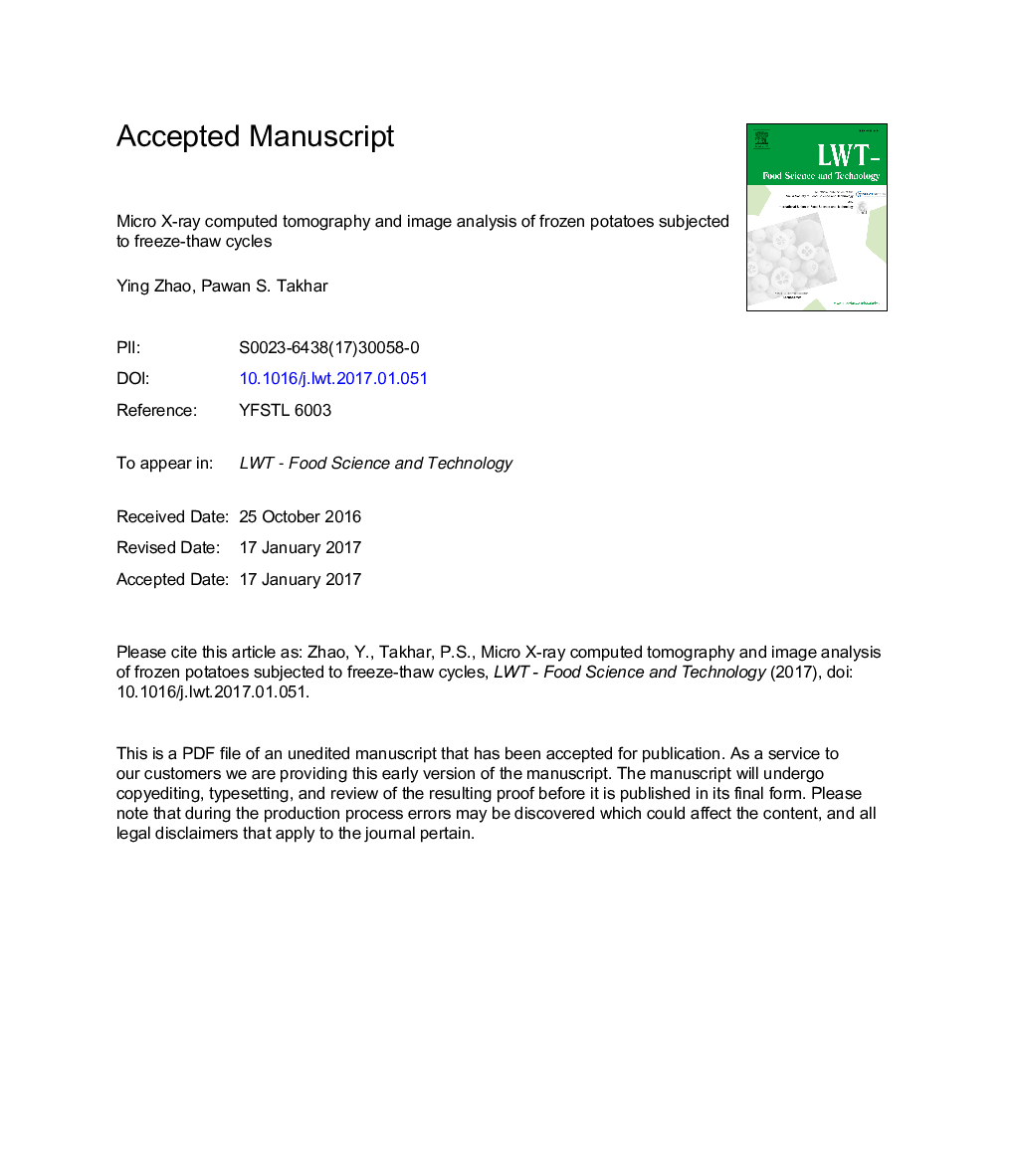| Article ID | Journal | Published Year | Pages | File Type |
|---|---|---|---|---|
| 5768771 | LWT - Food Science and Technology | 2017 | 27 Pages |
Abstract
Frozen products are subjected to freeze-thaw cycles during storage and shipping. These temperature fluctuations result in ice recrystallization, which causes undesirable quality changes, texture loss, and surface dehydration of frozen foods. The objective of this study was to investigate the effect of temperature fluctuations on ice crystal growth/decay in frozen potatoes. The potatoes, which were in a cuboid French fry shape, were frozen at â80 °C (control group) and fluctuated from â17 and â16 °C, â17 and â11 °C, and â17 and â7 °C for one and two weeks' duration. X-ray micro-computed tomography (CT) was used to observe the three-dimensional (3D) microstructure of frozen potatoes. Image analysis showed significant growth of ice crystals with increases in temperature fluctuations and duration of freezing. The total number of pores was reduced with increases in amplitude and duration of freeze-thaw cycles. These results demonstrate that micro-CT and image analysis can be used to analyze the microstructure of frozen materials and obtain valuable information for designing the freezing process.
Related Topics
Life Sciences
Agricultural and Biological Sciences
Food Science
Authors
Ying Zhao, Pawan S. Takhar,
